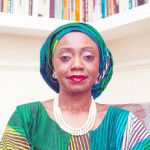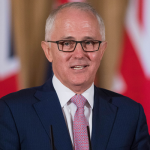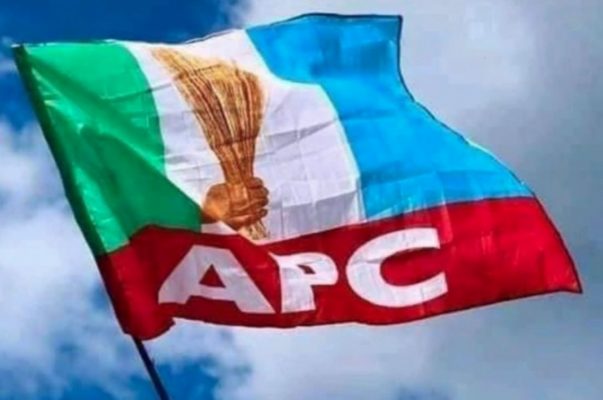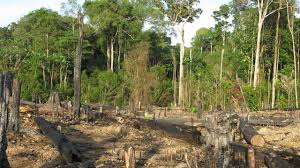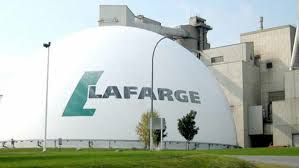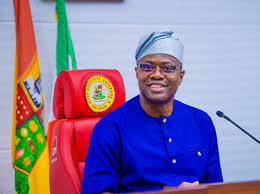We are worried that if FG and IOCs don’t develop Niger- delta now, is it when oil dries up? -Omare
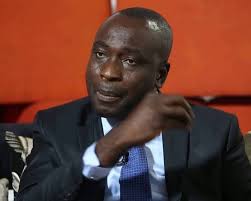
With the continued oil production and its devastating effect on the Niger-delta region, the President of Ijaw Youths Congress (IYC) worldwide, Barr. Eric Omare, has queried the continuous neglect of the people by the Federal Government and oil multinationals, in this exclusive interview with our correspondent AKAM JAMES, he described as unfortunate the position of the region.
As President of the Ijaw Youth Congress (IYC), Worldwide, tell us about the journey so far?
The journey has been challenging, but not a strange one, because I have been part of the system, of course you all know that before I became President, I was the immediate past spokesperson of the Udenz Eradiri led Exco from 2014 to the earlier part of 2017.
IYC is a pressure group to a large extent and our primary responsibility is to provide leadership for Ijaw youths all over Nigeria and other parts of the world, and also to galvanise other ethic nationalities or organisations to collectively fight for resource control and self-determination.
In 1998, when IYC was founded, one of the mandate by the founding fathers is to collaborate with other ethnic nationalities and fight for resource control and self- determination.
We realised that the problems in the Ijaw nation is not the ethnic groups within but caused by external factors through the instrumentality of the Federal Government, so one of the thing I have always emphasised is to collaborate with other ethnic nationalities and work collectively for the progress of the region.
One of such is what we have done in the Delta houses, the IYC is currently working effectively with the executive council to see that the dredging of the Warri excravoes and the significant of that project is that the Warri port which has the capacity to sustain the economy of the area will be very busy.
Generally, it’s a very challenging time for the Niger-Delta region because at the initial stage the Federal Government was very hostile towards the region, but it has gradually changed even when there are no physical steps at addressing our issues, but above all it hasn’t been too bad for the region.
Is the ideology behind the formation of IYC being followed?
The IYC was formed during the military era, and the mode of operations of a pressure group during the military era is totally different from what is obtainable in the civilian era of now.
In the military era, the pressure groups regarded government as an enemy that must be fought, but in a democratic setting like now, most of the founding fathers of IYC are the people in government and there’s always a relationship.
The ideology of IYC is to demand for resource control and self-determination by any means necessary. Where as in the military era it was more of antagonistic position, but now we act as the middlemen between members of the group and government.
Yes, there may be challenges in some areas where people tend to use it in promoting their personal aggrandisement, but the IYC for the ordinary man on the street is the struggle platform to agitate for resource control.
We are moving towards the general elections, and the call for restructuring seem to have gradually faded away, what’s your view?
The issue of restructuring and resource control is one of our primary mandate as the IYC, but for the IYC there are two paramount things, the resource control and self determination.
What restructuring means to the man from South-West or South-East may be different to what it means to an Ijaw man. Restructuring means first and foremost, giving us a right to self-determination, a political state and control over our resources, because without a political state you can’t control your resources from a distance.
Presently, we have 36 states in the country, and out of the 36 states we have Ijaw people in 6 states and out of the 6 states we have just one homogenous Ijaw state.
In a state like Ondo, Edo, Delta and Akwa-Ibom the Ijaws just form a fraction of those states. Let us use Edo State as an example, the highest political position for an Ijaw man is just councilor, and we based the resource control in the existing 36 states, so how will the Ijaw man in Edo State control his resources, also in Akwa-Ibom, Ondo and Delta state.
Self-determination will give us the political space for operation, it should be self-determination first before the resource control, I think the call for restructuring all over the country as an idea is generally acceptable,
but others are scared maybe they’re in control of government and if there’s a change it might affect their interest, but they fail to realise that no particular section of the country can be in power forever,
today they’re there and tomorrow it will be someone else, but it’s better for us to have a structure in the interest of everyone. I think it’s an idea that will happen and nothing on earth will stop it.
As a Niger-Deltan, IOCs operating from outside the region, does it border you at all?
The call for multinationals to relocate their headquarters to the region has been on for some time now, interestingly the Vice President Yemi Osibanjo as Acting President gave a presidential order, but we now realise it was just a political statement.
The argument for them to relocate is very compelling, because you must have your headquarters close to the area of operation for ease of business and also it will have a multiplying effect on the environment economic wise. Example, Exxon Mobil has its headquarters in Eket, all major contractors have their activities in that environment and also other businesses are booming too.
If Chevron was operating in Warri it will be the same case, but unfortunately we are operating in a country where some sections have added advantage and they wouldn’t want to give it up.
Today most headquarters are in Lagos and all taxes are paid to Lagos, so they wouldn’t want to lose those taxes, so they’ll use all the power at their disposal to maintain the fight.
The IOCs must relocate to the region, which is the only way they can contribute to the region and develop the people.
The Niger-Delta region is polluted till today, the Ogoni clean-up is still pending, what’s your view?
The problem of pollution is very unfortunate and pathetic. In the past the issue was taken very seriously when we were yet to get a democratic government. Oil pollution is rampant in Nigeria because there is no corresponding law.
I remember the explosion in Koluama by one of this oil platform years back, under President Goodluck Jonathan and nothing was done to pay compensation.
Just recently, the court has asked Shell to pay compensation on the Bonga oil spill and I know they’ll still use their position and influence to drag that case because we have a faulty system of oil exploration.
Nigeria operates what we know as production sharing contract or Joint venture, it operates this way, the multinationals have a stake and government also has a stake.
It is just for government to adopt what the United Kingdom government has done which is royalty, because you give a license to the operating companies and they pay royalties to government and government is not interested on how you operate the oil wells.
Government must remove its hand completely in the business of oil exploration and only collects royalties. The involvement of government in the business of oil exploration and exploitation is the reason why we have issues of oil spillage.
There are agitations for the legalising of local refinery, will it contribute positively or otherwise?
The problem of local refinery, what some persons call illegal refinery is embedded in the Niger-Delta region today and what I mean by that is this; our hostility in the region is that the host communities are not involved in the ownership and management of the oil activities.
Now in the present Nigeria crude oil acts stipulates that anything under the soil is owned by the Federal Government, so what that implies is that if I want to explore I go to the Ministry of Petroleum to request for a license and the minister or the President approves and the highest I do for the community is to pay for the use of land.
It makes the community not involve in the exploration of that oil, it’s the reason of that deprivation over the years and for those fishing can’t fish anymore, farm produces are destroyed, so the people are now in desperation to survive.
One of the greatest things you can do to a man is to stop him from surviving. So, many in the creeks venture into what we call the local refinery to survive, where they gain access to the oil and use in producing petroleum bye products, for us it is the environmental effects on the people.
There’s need to give legal backings to the activities of local refinery, the people need to have legal access to the crude oil through the platform that will be made available by government.
Secondly, there’s need for government to under study the activities of the people, a lot of government and private enterprises in the country are being run by the petroleum product of this people,
so therefore we must ensure we work on modalities so that their technology can be advanced and reduce the advent effects to the environment and I am in total support of the call for legalising of the local refinery.
Let me also make this point clear, Modular refinery is not a substitute for local refinery, because the number of people needed for the local refinery can’t be taken care of by the modular refinery.
What hope is there for the region?
The issue of the Niger-Delta is a complex one, in the sense that oil is not a renewable product because with time oil will dry up completely. The community where oil was first discovered in commercial quantity in the Niger-Delta is today dried up, which means in all other communities it will also dry up.
Now, the question in the mind of scholars, activist and social commentators is that when the oil dries up what will happen to the Niger-Delta region? You can’t take care of the region when there is oil, what of when the oil dries up? You must bear in mind that the terrain is a difficult one;
God in His infinite wisdom blessed the Niger-Delta region with not just oil but with other resources, so every passing day we are exposing the unborn children of the region to danger by not addressing the different issues of the Niger-Delta.
The issue is not just managing the oil of the region, but going into other sectors and developing the area positively so that when the oil dries up we’ll have what to fall back on.
As President of IYC, what are your plans for the youths of the region?
Beyond the advocacy, one of the areas we have covered is changing their orientation of relying on government without working.
Our people must imbibe the spirit of hard work, the free money is not obtainable because one of the things we must improve upon is to enlighten their orientation, and for those not opportune for higher education must be skillful.
Hard work is key to the survival of the Ijaw nation. Ijaw nation is not predicated on the oil wells, but predicated on the strength of the people to earn a living outside government’s free money.
There’s a factional President claiming you are impersonating, what do you have to say?
To start with, the IYC has a constitution and that is what binds us, and we had the first in 2006 and recently amended, so therefore the running of the IYC primarily is regulated by the constitution.
On the 1st day of March, 2017, we had an election, on the expiry date of the formal Excos, and I won the election and was inaugurated on the 2nd day of March 2017, it’s so ridiculous to see that after a sitting President has done an election and handed over to his successor, some former leaders of IYC reportedly said they have voted in another leadership.
My position is not to do anything that will result to break down of law and order, because our grievances has been submitted to the court. In any case this was not the first time, when Comrade Udenz Eradiri was the president and I served as the spokesman, some persons gathered and said they have removed us but the court said no, and I believe the court in the same manner will resolve the issue.
The IYC is the largest youth organization, so the challenges are not unusual especially for a youth organisation, but I believe when we come out of this challenge the precedent will guide others.
One of the challenge is that IYC was formed on the streets of protest so you don’t expect everyone to adhere to lay down laws and principles, people are used to a particular way of doing things, so its becomes difficult to adjust to another way, so once we have this one corrected such things will never repeat itself again.
Quote
The community where oil was first discovered in commercial quantity in the Niger-Delta is today dried up, which means in all other communities it will also dry up. Now, the question in the mind of scholars, activist and social commentators is that when the oil dries up what will happen to the Niger-Delta region? You can’t take care of the region when there is oil, what of when the oil dries up? You must bear in mind that the terrain is a difficult one; God in His infinite wisdom blessed the Niger-Delta region with not just oil but with other resources,


